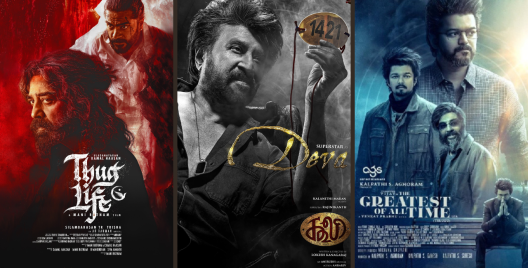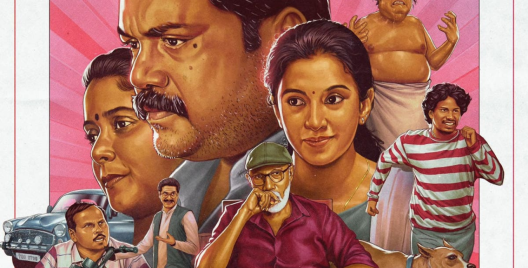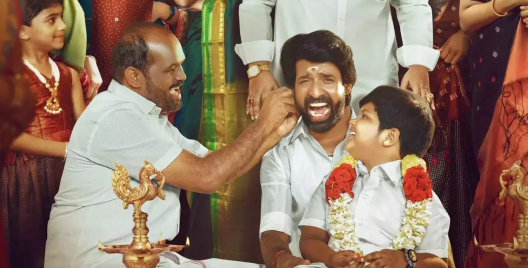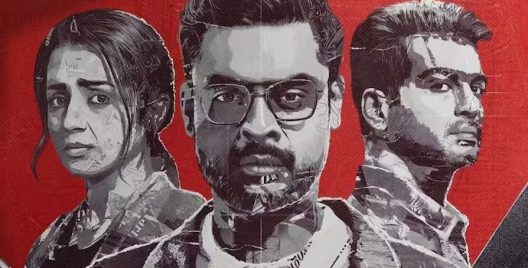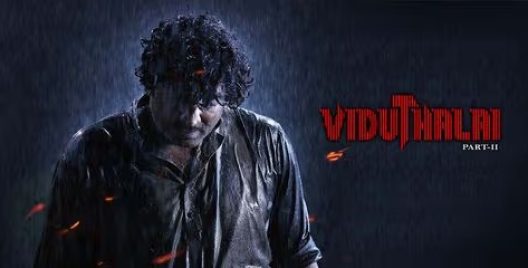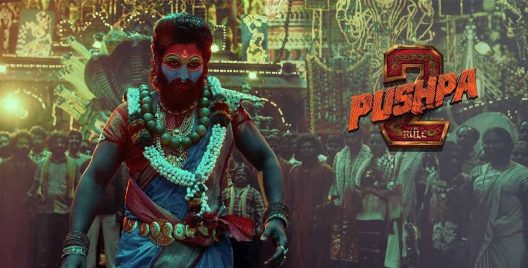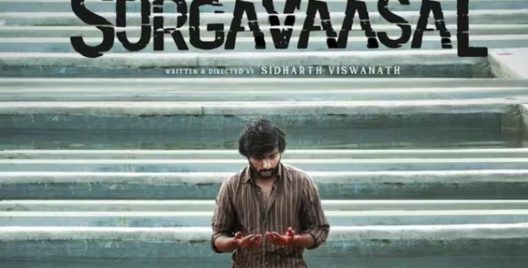Tamil cinema, like any other form of entertainment, has never been scarce in delivering narrow-mindedness through art, especially when it is about the LGBTQ+ community. Be it the classic “avana nee” by Vadivelu in ‘Gambeeram’ or the recent ‘valicha solla poguthu gomathi’ by Redin Kingsley in ‘Doctor’, we’ve never hesitated to crack ‘jokes’ at the expense of homosexuals and transgendered people.
But a few films, across various genres have nailed the representation of the LGBTQ+ community and given us inspiring, wholesome and intense characters.
Shilpa in Super Deluxe

A monumental and cardinal character to the movie, thereby, Kollywood in itself. Be it Shilpa’s love for Raasukutty (their son), the witty replies to bullies in school, or the stubborn resistance to judgemental relatives, Thiyagaraja Kumararaja has penned a very unapologetic trans person for us to celebrate.
Curating a trans woman character as someone who asks a teary-eyed, heartbroken wife, “Am I beautiful?” while draping a saree instead of apologizing for who they are; as someone who gets angry and reacts against the system instead of staying mute or demanding sympathy; as someone who tells their son to “be himself”, is quite rebellious and that’s what makes Shilpa stand out among other trans characters.
Sathaar in Paava Kadhaigal

With the emergence of alternate media like OTTs, there has been a surge in the voices of the subaltern. One such representation was Sathaar in Thangam, the first chapter of Paava Kadhaigal. Although set in the interiors of Tamil Nadu during the 80s, Sudha Kongara’s Thangam, had a very intersectional perspective to it – with Sathaar being a victim to not one, but two kinds of discrimination as a Muslim homosexual.
A fun-spirited, frolic, hopeless romantic, lively and easily amused Sathaar rather meets an unfortunate end. Sathaar giving away his hard earned money to his sister, which he had saved up to get a gender-affirmation surgery, so she leads a smooth life with her lover who also happens to be Sathaar’s unrequited lover only to get lynched by the village men, was extremely hard-hitting and tragic.
Emily in Aruvi

Aruvi is one of those gems of Tamil cinema that was truly ahead of its time – daring, rebellious, remorseless, asking all the uncomfortable questions. Not to forget, it is one among the very few films to have cast an actual trans woman in a trans woman role.
The bond that Aruvi forms with Emily, the trans woman is a really underrated female friendship in Tamil cinema – two women doing mundane things like window shopping, oogling at men, eating together but also agreeing to go on a trip with the money you collected to treat your bed-ridden father because he chose to shun you and your help since his honor was bigger than himself. Afterall, what more do you need in life than a friend who would go to any extent to protect you and bring your perpetrators to justice even if it’s on national television?
Danny & Jack in Goa

3 friends from the interiors of Madurai run off to Goa and among everything ultra-modern they encounter in 2010 urban India, they meet a homosexual couple. But neither of them mock them, view them as aliens nor get fascinated by them – they accept them just like a straight couple. Goa was one of the first films to have a homosexual trope for non-comical reasons – there’s even a song (Valiba Vaa Vaa) on accepting homosexuality.
Jack and Danny played by Aravind Akash and Sampath are fruity and fun gays even before that became a thing. They were neither stereotyped nor revered; they were a ‘just another couple’ getting jealous and possessive over one another through which Venkat Prabhu normalized homosexual relationships.
Kanchana and Geetha in Kanchana

Sarathkumar as ‘Kanchana’ in Kanchana is a heavily criticized and stereotypical portrayal of trans women but it was actually one of the first Tamil films to portray them in a good light. The film being a commercial success especially among children created a great deal of awareness on the transgender community and their struggles among the younger generation.
Until then, films showed transgendered persons as those who run brothels or rope in young girls for sex work but Kanchana was extremely progressive and significant for covering issues like a coming out as trans to parents (that too through knowledge they gained from the internet), the regressive society that treats gender fluidity as a taboo, and being shunned by one’s own family.
Not to forget that Kanchana also raised and funded medical education for another trans woman (played by Priya Ezhumalai, a real life trans woman) highlighting the lack of opportunities our society gives to transgenders.
Kanchana was the face of transgender community for a very long time (most probably because there was a dearth of trans characters in good light), as a person who battled evil, broke social barriers and stood for equality.
Meera in Peranbu

While transgendered people playing the roles of trans characters is considered a big leap in representation, Director Ram went the extra mile to make his trans character (played by Anjali Ameer) the lead of his film who then ends up marrying the hero, Mammootty.
Although Meera starts as a sex-worker, a trend that all transgenders have been stereotyped with, she wins our heart as a ray of hope in Amudhavan’s life, as his savior, as his solace as his breathing space but also as a loving step-mother, companion and friend to Paapa.
Tamil cinema has come a long way from stereotyping the members of the LGBTQ+ community and using them solely as comical tropes to writing character arcs for them. But we have a longer way to go since films that are a commercial success and those largely consumed by kids or those that star ‘heroes’ like Jailer, Doctor or Mark Antony continue to oppress and ridicule them through roles of ‘Divya’ played by Redin Kingsley, ‘Gomathy’ played by Karate Karthi and ‘Gowri’ played by YG Mahendran.
Directors who consider themselves “new gen” need to get rid of such antique humor tropes, if not share the burden of appropriate representation of the LGBTQ+ community vested only in the hands of those who make subaltern cinema or art films. Because morally right, uni-dimensional and sexually/socially oppressed can’t continue to be the only character traits of LGBTQ+ characters in films.
Not to forget that we’ve only written roles for trans and homosexual people, there are still 3+ alphabets in LBGTQIA+ to explore!





